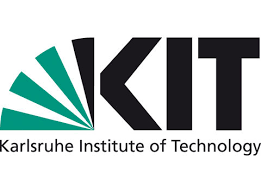Karlsruhe Institute of Technology: Hybrid teaching at KIT: online formats secure face-to-face events
Since the beginning of the winter semester in October 2021, after three online semesters, many lectures have been taking place on-site on the KIT South Campus. “This was an important concern for both students and teachers,” says the Vice President for Teaching and Academic Affairs of KIT, Professor Alexander Wanner. At the same time, students can also attend some face-to-face lectures online from other locations. This simultaneous, interactive live participation in courses via various media from different locations is the principle of hybrid teaching. With the new mixed formats, participation is also possible for students who are currently abroad, are not yet fully vaccinated or are not allowed to attend in attendance due to quarantine or symptoms typical for COVID-19. Currently, about a third of the lectures at KIT are offered as hybrid events. They complement the portfolio of courses, which also include face-to-face formats, supplemented by electronically provided learning materials, as well as pure online formats.
35 KIT lecture halls equipped with additional technology for hybrid formats
“It was important to me to be able to offer present teaching again this semester,” says Professor Marc Hiller from the Electrotechnical Institute of KIT. He conducts his lecture “Electrical machines and power converters” as a live stream via the video conference software Zoom and then makes the recording available to the students. The lecture hall in which the event takes place is one of 35 lecture halls at KIT that have been equipped with additional technology for hybrid formats. During the entire lecture there is a chat in which the students can answer questions from one another. “I find the chat especially enriching,” said Hiller. “The inhibition threshold is lower and the students can quickly clarify simple questions with one another.” Instead of the blackboard, he uses a graphics tablet, With which he can not only show slides, but also edit and add to them by hand. He wants to keep this method in all of his lectures in the future.
Professor Shervin Haghsheno from the Institute for Technology and Management in Construction is also holding his course on project management for the first time in hybrid form. “Due to the special situation with regard to the pandemic, it was very important to me this semester to create framework conditions that enable all students to have good learning success,” explains Haghsheno. With a second projection of the zoom gallery view, the students can perceive themselves as a group on site and online. During the lecture, questions are regularly asked of the students. “Online students answer live in the lecture hall via zoom,” says Haghsheno, “and to make the questions from the auditorium audible on site in the live stream, we use a microphone.”
Hybrid concepts should also contribute to more flexible study organization in the future
Of the approximately 150 students who take part in the two events mentioned, two thirds had taken part on site and one third remotely by mid-November. This relationship has been reversed since the end of November. The concept of hybrid teaching enables students to decide for themselves how they want to participate in view of the current infection situation in the corona pandemic. The lecturers can still hold their courses as planned. “It turns out that it was an advantage for everyone involved to focus on hybrid teaching from the beginning of the semester,” said Vice President Wanner.
Marc Hiller and Shervin Haghsheno can well imagine teaching hybrids beyond the pandemic. The new mixed formats should also allow students to participate in the future if they cannot be present. In addition, it is better possible to respond to the different learning styles of the students. They were mostly positive about the hybrid implementation. “The flexible participation option makes it easier for students to organize their studies,” reports Marc Hiller. The options for interactive participation via chats or quizzes would also go down well with them.
“Many lecturers at KIT have specifically developed the existing options with a lot of initiative and commitment,” says Wanner. Beyond that, however, the exchange between the lecturers and the students as well as among the students in face-to-face events remains of central importance for their learning success and personal development. “The challenge for the future is to find the best combination of face-to-face and online offers. In any case, we will be able to build on our previous experience with hybrid concepts, ”says Wanner.

